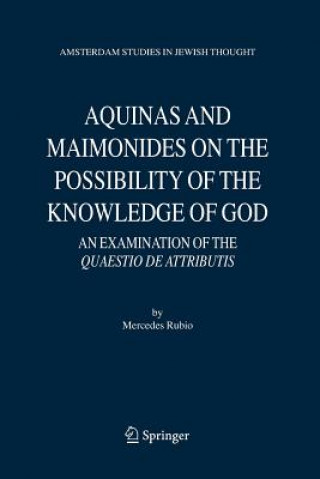
Kod: 01975375
Aquinas and Maimonides on the Possibility of the Knowledge of God
Autor Mercedes Rubio
Thomas Aquinas wrote a text later known as Quaestio de attributis and ordered it inserted in a precise location of his Commentary on the Sentences of Peter Lombard more than a decade after composing this work. Aquinas assigned exc ... więcej
- Język:
 Angielski
Angielski - Oprawa: Miękka
- Liczba stron: 326
Wydawca: Springer, 2010
- Więcej informacji o książce

1130.24 zł

Dostępna u dostawcy w małych ilościach
Wysyłamy za 12 - 15 dni
Potrzebujesz więcej egzemplarzy?Jeżeli jesteś zainteresowany zakupem większej ilości egzemplarzy, skontaktuj się z nami, aby sprawdzić ich dostępność.
Dodaj do schowka
Zobacz książki o podobnej tematyce
-

Lift and See: Animals
36.79 zł -

Now - The Physics of Time
135.40 zł -10 % -

Aphrodite's Island
115.64 zł -4 %
Bon podarunkowy: Radość gwarantowana
- Podaruj bon o dowolnej wartości, a my się zajmiemy resztą.
- Bon podarunkowy dotyczy całej naszej oferty.
- Możesz wydrukować elektroniczny bon z e-maila a następnie przekazać go obdarowanemu.
- Ważność bonu wynosi 12 miesięcy od daty wystawienia.
Więcej informacji o Aquinas and Maimonides on the Possibility of the Knowledge of God
Za ten zakup dostaniesz 658 punkty
 Opis
Opis
Thomas Aquinas wrote a text later known as Quaestio de attributis and ordered it inserted in a precise location of his Commentary on the Sentences of Peter Lombard more than a decade after composing this work. Aquinas assigned exceptional importance to this text, in which he confronts the debate on the issue of the divine attributes that swept the most important centres of learning in 13th Century Europe and examines the answers given to the problem by the representatives of the four mainstream schools of his time: the Greek mystic Dionysius Areopagita, the Latin Saint Anselm of Canterbury, the Jewish rabbi Moses Maimonides and the Muslim philosopher Ibn Sina. This in-depth study of Thomas Aquinas Quaestio de attributis (In I Sent., d. 2, q. 1, a. 3) binds together the findings of previous research on the unique history of this text by reconstructing the historical circumstances surrounding its composition, shows that the Quaestio contains Aquinas final answer to the dispute on the divine attributes, and thoroughly examines his interpretation of Maimonides position on the issue of the knowledge of God by analysing this and other texts related to it chronologically and doctrinally. The examination of the Quaestio reveals the background of Thomas Aquinas renewed interest in Maimonides position on the issue and brings to light elements of Aquinas interpretation that are absent from his earlier references to Maimonides. §Moreover, the chronological and doctrinal connection of the Quaestio de attributis to other Thomistic works with explicit references to Maimonides enables a reconstruction of his comprehensive approach to Maimonides teaching on the possibility and extent of the knowledge of God in the Guide of the Perplexed and highlights the place of Maimonides philosophical teachings in Thomas own thought in issues like "Being" as the proper name of God, the multiplicity of the divine names, the beatific vision in the afterlife, the causes that prevent the instruction of the multitude in divine matters and the role of faith and prophecy in the acquisition of the true knowledge of God in this life. The last chapter examines the reasons behind Aquinas silencing of Maimonides name when introducing his Five Ways for the knowledge of the existence of God, in spite of the evident relation between these and Maimonides Four Speculations. The study is completed with an extensive appendix that includes the text of the Quaestio de attributis with an English translation and the critical edition of several chapters of the 13th Century Latin translation of the Guide of the Perplexed known as Dux neutrorum.This in-depth study of Thomas Aquinas Quaestio de Attributis binds together the findings of previous research on the unique history of this text by reconstructing the historical circumstances surrounding its composition, shows that the Quaestio contains Aquinas final answer to the dispute on the divine attributes, and thoroughly examines his interpretation of Maimonides position on the issue of the knowledge of God by analysing this and other texts related to it chronologically and doctrinally.Thomas Aquinas wrote a text later known as Quaestio de attributis and ordered it inserted in a precise location of his Commentary on the Sentences of Peter Lombard more than a decade after composing this work. Aquinas assigned exceptional importance to this text, in which he confronts the debate on the issue of the divine attributes that swept the most important centres of learning in 13th Century Europe and examines the answers given to the problem by the representatives of the four mainstream schools of his time: the Greek mystic Dionysius Areopagita, the Latin Saint Anselm of Canterbury, the Jewish rabbi Moses Maimonides and the Muslim philosopher Ibn Sina. This in-depth study of Thomas Aquinas Quaestio de attributis (In I Sent., d. 2, q. 1, a. 3) binds together the findings of previous research on the unique history of this text by reconstructing the historical circumstances surrounding its composition, shows that the Quaestio contains Aquinas final answer to the dispute on the divine attributes, and thoroughly examines his interpretation of Maimonides position on the issue of the knowledge of God by analysing this and other texts related to it chronologically and doctrinally. The examination of the Quaestio reveals the background of Thomas Aquinas renewed interest in Maimonides position on the issue and brings to light elements of Aquinas interpretation that are absent from his earlier references to Maimonides. Moreover, the chronological and doctrinal connection of the Quaestio de attributis to other Thomistic works with explicit references to Maimonides enables a reconstruction of his comprehensive approach to Maimonides teaching on the possibility and extent of the knowledge of God in the Guide of the Perplexed and highlights the place of Maimonides philosophical teachings in Thomas own thought in issues like "Being" as the proper name of God, the multiplicity of the divine names, the beatific vision in the afterlife, the causes that prevent the instruction of the multitude in divine matters and the role of faith and prophecy in the acquisition of the true knowledge of God in this life. The last chapter examines the reasons behind Aquinas silencing of Maimonides name when introducing his Five Ways for the knowledge of the existence of God, in spite of the evident relation between these and Maimonides Four Speculations. The study is completed with an extensive appendix that includes the text of the Quaestio de attributis with an English translation and the critical edition of several chapters of the 13th Century Latin translation of the Guide of the Perplexed known as Dux neutrorum
 Szczegóły książki
Szczegóły książki
Kategoria Książki po angielsku Humanities Philosophy History of Western philosophy
1130.24 zł
- Pełny tytuł: Aquinas and Maimonides on the Possibility of the Knowledge of God
- Podtytuł: An Examination of The Quaestio de attributis
- Autor: Mercedes Rubio
- Język:
 Angielski
Angielski - Oprawa: Miękka
- Liczba stron: 326
- EAN: 9789048171804
- ISBN: 9048171806
- ID: 01975375
- Wydawca: Springer
- Waga: 530 g
- Wymiary: 240 × 160 × 19 mm
- Data wydania: 25. November 2010
Ulubione w innej kategorii
-

Meditations
45.36 zł -14 % -

The Myth of Sisyphus
29.33 zł -4 % -

Why I Am so Clever
15.62 zł -22 % -

Meditations
50.50 zł -26 % -

Republic
57.76 zł -5 % -

Beyond Good and Evil
47.38 zł -23 % -

Gay Science
69.05 zł -

Aphorisms on Love and Hate
15.42 zł -23 % -

Beyond Good & Evil
61.19 zł -23 % -

Meditations on First Philosophy
47.38 zł -23 % -
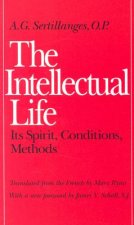
Intellectual Life
96.38 zł -6 % -

Socrates' Defence
15.42 zł -23 % -
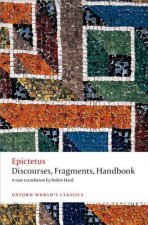
Discourses, Fragments, Handbook
52.42 zł -15 % -

Ride the Tiger
105.86 zł -4 % -

Thus Spoke Zarathustra
47.28 zł -14 % -

Fear and Trembling
47.38 zł -23 % -

Birth of Tragedy
15.31 zł -23 % -
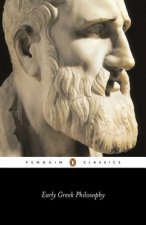
Early Greek Philosophy
61.19 zł -23 % -

Groundwork for the Metaphysics of Morals
47.38 zł -23 % -
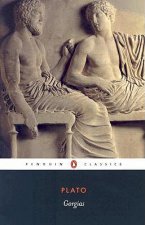
Gorgias
45.66 zł -5 % -

Brief History of Analytic Philosophy - From Russell to Rawls
164.03 zł -3 % -
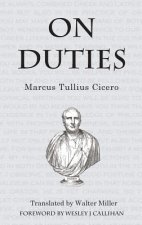
On Duties
57.56 zł -5 % -

Discourses and Selected Writings
52.42 zł -15 % -

Nicomachean Ethics
24.59 zł -23 % -

Nausea
47.38 zł -23 % -

Letters from a Stoic
47.38 zł -23 % -

Meditations
101.92 zł -4 % -

Simulacra and Simulation
86.20 zł -12 % -

Phenomenology of Spirit
93.76 zł -5 % -

Twilight of the Idols with The Antichrist and Ecce Homo
24.59 zł -23 % -

On Liberty, Utilitarianism and Other Essays
38.30 zł -23 % -

On the Suffering of the World
25.09 zł -26 % -

Human Condition
95.87 zł -4 % -

On the Shortness of Life
38.30 zł -14 % -

Existentialism Is a Humanism
45.56 zł -4 % -

Think
52.02 zł -23 % -

Guide to the Good Life
74.40 zł -9 % -
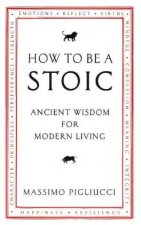
How To Be A Stoic
73.69 zł -15 % -

The Symposium
45.66 zł -5 % -

Human, All Too Human & Beyond Good and Evil
24.59 zł -23 % -

At The Existentialist Cafe
53.23 zł -3 % -

Undiscovered Self
121.69 zł -

Passions of the Soul and Other Late Philosophical Writings
51.91 zł -23 % -

The Trouble With Being Born
65.63 zł -4 % -

Leviathan
24.59 zł -23 % -
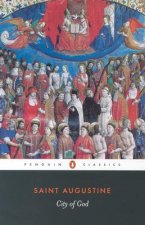
City of God
77.83 zł -5 % -

Ecce Homo
42.94 zł -23 % -
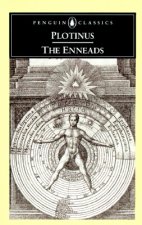
Enneads
81.76 zł -5 % -

On Friendship
33.66 zł -23 %
zadowolonych klientów
Od roku 2008 obsłużyliśmy wielu miłośników książek, ale dla nas każdy był tym wyjątkowym.
Copyright! ©2008-24 libristo.pl Wszelkie prawa zastrzeżonePrywatnieCookies


 21 milionów książek
21 milionów książek Dostawa 10.99 zł
Dostawa 10.99 zł (32) 444 93 66 (8-15.30h)
(32) 444 93 66 (8-15.30h)